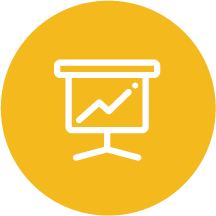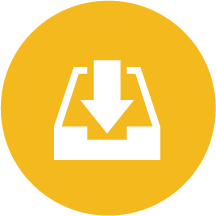Should I study IB Business and Management
IB Business and Management is offered at Higher Level (HL) and Standard Level (SL). If you would like to further your studies in a business-related discipline at university, it is recommended that you take Business and Management at IB. In addition, you might want to consider doing a Business and Management Extended Essay (EE) to demonstrate your research capabilities to perspective universities. However, IB Business and Management is not usually a pre-requisite for undergraduate business courses.
How to get a 7 in IB Business and Management
One of the greatest challenges for students studying IB Business and Management is writing the Business IA (Internal assessment). To do well, you should develop a well-scoped research question that allows you to complete your research in reasonable depth within the word limit.
To perform well in the exams, you should actively apply the business concepts you have learnt to the scenarios given in the question papers. Because of this, past paper drilling is crucial for you to master the skills needed to connect concepts to scenario-based questions.
How CANA coaches students to achieve a 7 in IB Business and Management
Besides teaching the fundamental concepts, our lessons and courses focus heavily on the application of business concepts to different scenarios through past paper drills. To get the most out of the lessons, CANA’s teachers also discuss how the answers should be structured and phrased to enhance effective communication of ideas.
CANA also offers Business IA coaching, which involves discussing the student’s Business IA title, methodology, analysis, and evaluation. In addition, our tutors review students’ work to make sure that the grading criteria are met. If you would like to seek coaching on the Business IA, we recommend registering for a lesson well before the deadline so the direction and scope of the IA can be clearly defined from the start.
Students often ask for research question ideas on their EE (Extended Essay). Realistically, a good EE research question/ topic should be appropriately designed so that you would be able to 1) gather meaningful primary and/or secondary data if needed and 2) be able to scope things like the interpretation of the data, analysis and evaluation of the data / events within the 4,000-word limit.
Here are some sample Business Management EE research questions:
- To what extent has the usage of Guerilla Marketing affected the brand image of Supreme?
- To what extent will the zero commission rate affect the profitability position of brokerage firm Charles Schwab?
- To what extent can Oracle's success be attributed to its corporate culture and organizational structure?
- What strategic changes should Tesla implement in its operation and marketing to increase their product consumption?
- How successful has the application of lean production principles been to Chrysler?
- To what extent has adopting digital promotion and distribution strategies contributed to ABC Entertainment’s continuous sales growth during the pandemic?
Business and Economics are both offered as subjects in the IB under group 3, but students are often unaware of the differences between the two, and therefore conflicted on which subject to pursue. Let’s briefly go through the differences between IB Business and IB Economics, as well as their pros and cons, so that you can make a well-informed decision.
What does the IB Business syllabus include?
The IB Business syllabus covers the following units:
- Business Organisation and Environment
- Human Resource Management
- Finance and Accounts
- Marketing
- Operations Management
IB Business offers a good general overview of the business world and helps students build a foundation for each of the five units. Students will learn primarily through case studies, with an emphasis on gaining practical rather than theoretical knowledge. Since the curriculum revolves around realistic situations and case studies in daily life and within organisations, students may find it easier to draw comparisons and contextualise what they learnt in class. Overall, IB Business focuses on the big picture and the practical, which may be more appealing to some students.
What does the IB Economics syllabus include?
The IB Economics syllabus covers the following units:
- Introduction to Economics
- Microeconomics
- Macroeconomics
- The Global Economy
In contrast to IB Business, IB Economics requires the skilled application of graphical understanding and analysis. In Economics, students learn to see relationships in the economic world in detail, step by step. The focus leans towards theoretical and conceptual understanding of models, so it will involve more calculations.
Which one should I pick?
In terms of IB final results, the statistical bulletin released by the IBO reveals some differences between Economics and Business. In the May 2019 exams (written before Covid and externally assessed), the percentage of Higher Level students who received a Level 7 were 13.1% for Economics, and 7.2% for Business. The percentage distribution for students receiving Level 5 and Level 6, however, were similar. (See p.16 of the statistical bulletin for further information.) These results are consistent with the way Economics exams are formatted in comparison to Business exams. Economics questions tend to be mathematics and calculations based, which means it is easier to get answers objectively correct. In contrast, Business questions require some creative and subjective answers that make it difficult to earn consistent marks with certainty.
Moreover, for students applying towards Mathematics or Economics related subjects, IB Economics may be a better fit. Admissions officers at renowned UK universities tend to prefer Economics students over Business students, because they are better able to show their strength in graphical and mathematical skills. For example, the London School of Economics (LSE) website states that “[they] consider traditional academic subjects to be the best preparation for studying at LSE [...] Some subjects provide less effective preparation”. LSE lists Business Studies under “non-preferred subjects” and Economics under “traditional/preferred subjects”.
However, if you are considering studying Business Management, Human Resources, Marketing, Finance, Languages, or Humanities at university, choosing between IB Business and IB Economics will not make a significant difference. If you consider yourself to be a Languages or Humanities person, or if you find it difficult to study graphical and mathematical models, IB Business may be more suitable for you. Meanwhile, if you are a person who enjoys graphical models and understanding concepts and theories, IB Economics could be your choice.







